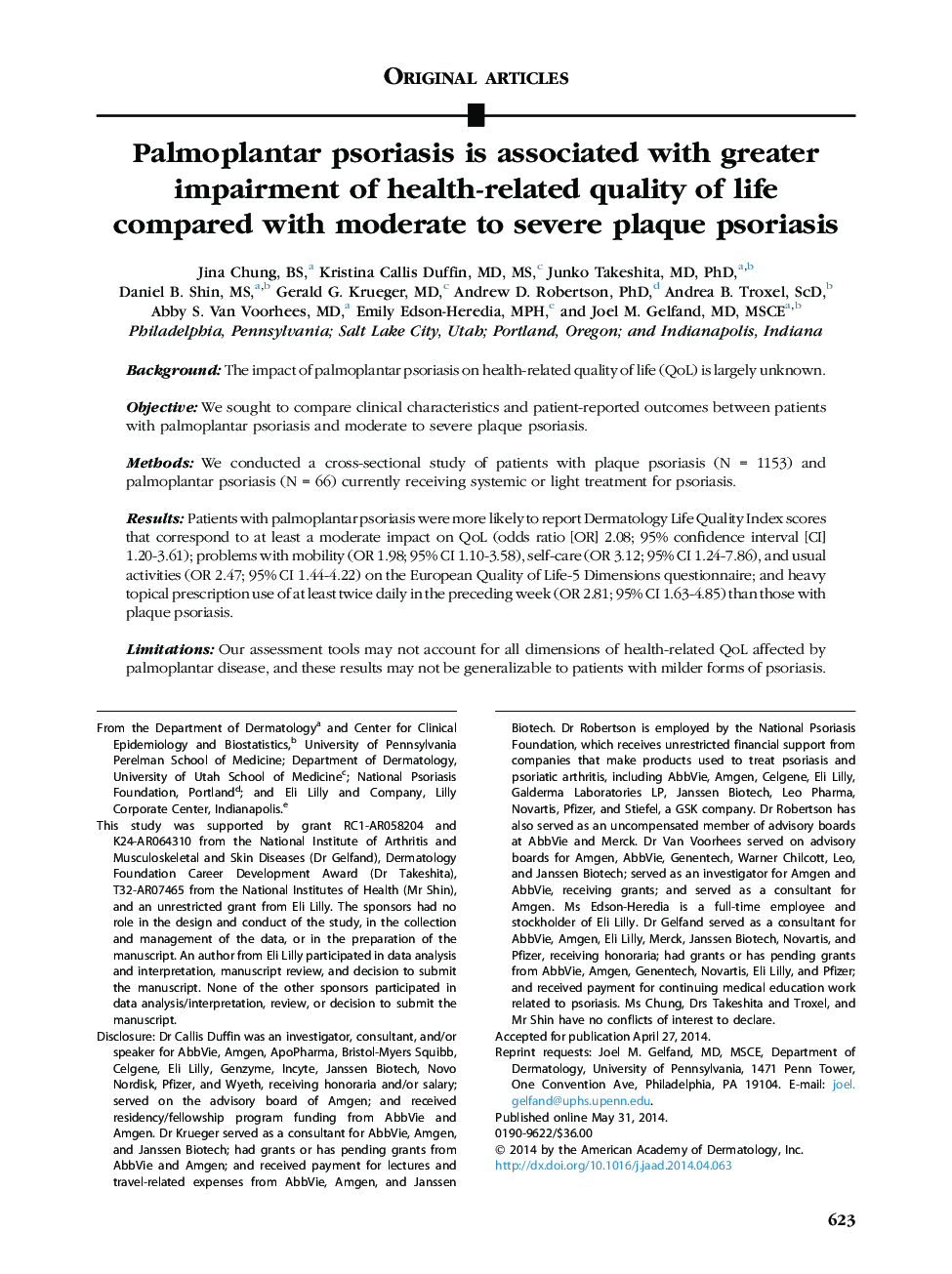| Article ID | Journal | Published Year | Pages | File Type |
|---|---|---|---|---|
| 6071611 | Journal of the American Academy of Dermatology | 2014 | 10 Pages |
BackgroundThe impact of palmoplantar psoriasis on health-related quality of life (QoL) is largely unknown.ObjectiveWe sought to compare clinical characteristics and patient-reported outcomes between patients with palmoplantar psoriasis and moderate to severe plaque psoriasis.MethodsWe conducted a cross-sectional study of patients with plaque psoriasis (NÂ = 1153) and palmoplantar psoriasis (NÂ = 66) currently receiving systemic or light treatment for psoriasis.ResultsPatients with palmoplantar psoriasis were more likely to report Dermatology Life Quality Index scores that correspond to at least a moderate impact on QoL (odds ratio [OR] 2.08; 95% confidence interval [CI] 1.20-3.61); problems with mobility (OR 1.98; 95% CI 1.10-3.58), self-care (OR 3.12; 95% CI 1.24-7.86), and usual activities (OR 2.47; 95% CI 1.44-4.22) on the European Quality of Life-5 Dimensions questionnaire; and heavy topical prescription use of at least twice daily in the preceding week (OR 2.81; 95% CI 1.63-4.85) than those with plaque psoriasis.LimitationsOur assessment tools may not account for all dimensions of health-related QoL affected by palmoplantar disease, and these results may not be generalizable to patients with milder forms of psoriasis.ConclusionPatients with palmoplantar psoriasis experience greater health-related QoL impairment and are more likely to report heavy use of topical prescriptions than those with moderate to severe plaque psoriasis.
